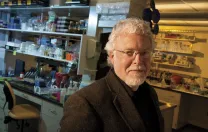One of the chief obstacles to finding new antibiotics is that many pharmaceutical companies have stopped looking. According to a report by the Infectious Diseases Society of America, just five major firms were engaged in antibiotic discovery in 2009; others, discouraged by economic and regulatory challenges, have left the field. Even worse, the report warned, “We remain concerned that the infrastructure for discovering and developing new antibacterials continues to stagnate, thereby risking the future pipeline of antibacterial drugs.”
The economics of antibiotics pose a major barrier to pharmaceutical investment. Antibiotics are no cheaper to develop than other drugs, but they bring in less revenue: unlike treatments for chronic conditions like asthma or high cholesterol, antibiotics are given in courses that typically last only a few weeks. Moreover, because resistant infections are on the rise, newly approved antibiotics are held in reserve, to be used only after more common treatments fail. To encourage antibiotic development, Congress passed an act in 2012 that granted companies an extra five-year exclusive-marketing period for new drugs that combat infectious diseases, and public-private partnerships are beginning to subsidize the cost of research and clinical trials.
Such clinical trials are a formidable second hurdle: the drug-approval process traditionally requires large, costly trials with many patients. For companies developing treatments for drug-resistant pathogens, says John Rex, head of infection development at AstraZeneca, “That means the epidemic has to have already occurred.” The European Union recently created a new, streamlined pathway for antibiotic approval; the U.S. Food and Drug Administration is considering similar guidelines. The pathway would permit smaller, more rapid trials for drugs that target resistant pathogens; they are similar in concept to guidelines for “orphan drugs” that treat rare diseases. Drugs approved under this pathway would carry a more provisional usage label, advocating their prescription only in well-defined cases in which other options have been exhausted. Such drugs might be considerably more expensive as well, reflecting their medical value. “Antibiotics save your life,” says Rex. “And on average, they give you back many years of life”—but they are currently among the cheapest drugs. When accounting for the years of life saved, Rex and colleagues have argued that a course of novel antibiotics given to treat an otherwise resistant infection might rationally cost $30,000.
Together, the new policies aim to draw companies back into antibiotic development, leading to future innovation. “What I really want to see is a diverse, vibrant drug pipeline,” says Rex. “We’re not quite to that yet, but we’ve laid the groundwork.”









